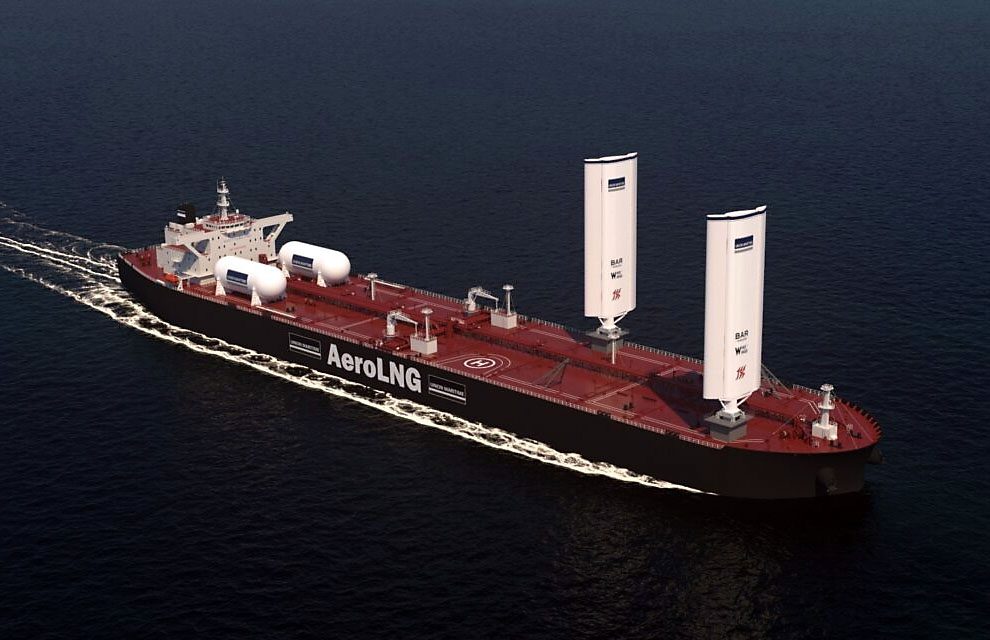BAR Technologies has confirmed a landmark order for its WindWings® propulsion system to be installed on two new LR2 dual-fuel tankers, marking one of the first confirmed large-scale wind propulsion deployments on this critical vessel class.
The decision builds on the successful integration of WindWings® aboard the UML-operated Brands Hatch, demonstrating growing industry momentum behind wind as a core alternative fuel in the maritime decarbonisation transition.
The new 250mlong tankers, Suzuka and Long Beach, will each be equipped with two 37.5m WindWings®, delivering substantial reductions in fuel consumption and emissions. Designed by SDARI and constructed by Xiamen Shipbuilding Industry (XSI), steel cutting is confirmed for November 2025, with delivery scheduled for the first quarter of 2027.
Fitting WindWings® to tankers of this type breaks new ground for wind propulsion, proving that the technology can scale and integrate alongside dual-fuel systems. Wind is no longer an experiment or future option — it is now a proven fuel source capable of delivering real impact.
The vessels will be flagged under the Marshall Islands and classed by Bureau Veritas Marine & Offshore, highlighting WindWings®’ compliance with rigorous international safety and performance requirements. The Marshall Islands Registry’s long-standing relationship with UML is further reinforced through this selection, reflecting UML’s commitment to responsible and innovative fleet development.
The deployment on LR2 tankers is particularly significant, given their widespread use in transporting refined petroleum and chemicals. Incorporating wind propulsion into this vessel class represents a shift from innovation to infrastructure.
This order follows the impressive operational results from Brands Hatch, where WindWings® exceeded expectations in installation, commissioning, and early performance. That vessel has become a powerful case study in practical viability. Extending WindWings® to a different vessel class reflects growing confidence in wind propulsion as a scalable, commercially sound, and free-at-source alternative fuel.
Each vessel’s two WindWings® units are expected to save around three tonnes of fuel daily, translating to approximately 2300 tonnes of annual CO₂ reductions—equivalent to removing over 500 conventional passenger cars from service.
These newbuild tankers are set to enter operation ahead of the IMO’s 2030 emissions reduction targets, offering early compliance benefits and long-term operational efficiencies.


